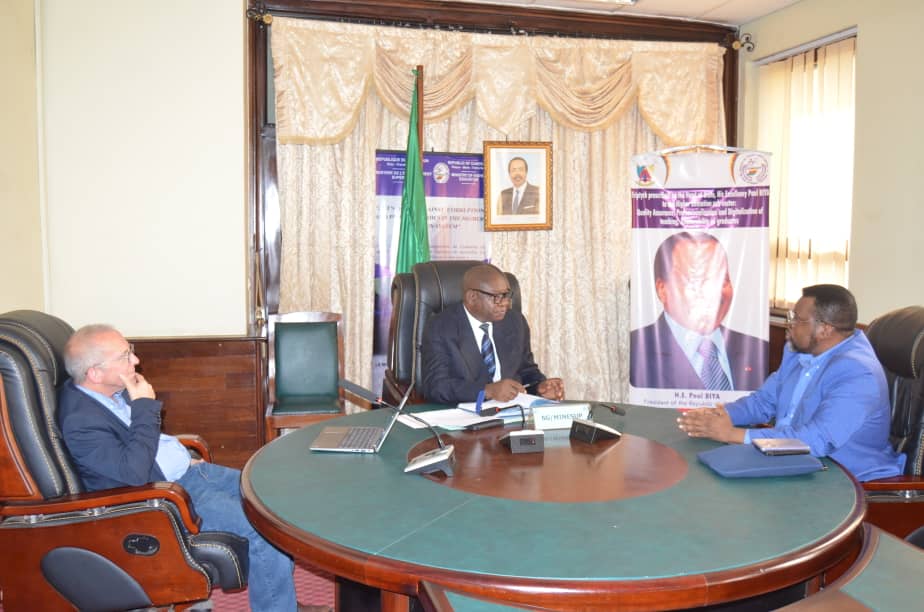by Amos Muang Nsah

The American Institute for Interdisciplinary Research (AIIR), a U.S.-based research institute dedicated to improving human capital formation and facilitating the export of knowledge, technology, and innovation, has begun an initiative with the Ministry of Higher Education and the public universities of Cameroon. Having for strategic goal to retain local talent, combat brain drain, and encourage the return of the African diaspora, this partnership marks a major milestone in AIIR’s mission to build bridges between the Global North and Africa through interdisciplinary collaboration and sustainable development programs.
The initiative, led by Professor Eric Mulumba Zozo and Professor Yoram Gidron, succeeds AIIR’s pioneering work for preventative care improvement at the University of Yaounde I and introduces an innovative training program across the Faculties of Medicine at Cameroon’s state universities. The training program which holds a considerable strategic value for both transfer of technology and economic development has already received backing by the Minister of State for Higher Education, Professeur Jacques Fame Ndongo, who invited Vice-Chancellors and Rectors from all state universities in Cameroon to take an active part in this initiative, as well as from the Secretary General in Higher Education, Professeur Wilfred Nyongbet Gabsa. The pilot program which focuses on the healthcare field includes a protocol for training professionals and academics in the management of chronic diseases using vagal nerve stimulation techniques—a promising approach grounded in research on heart rate variability (HRV) and the autonomic nervous system.
The vagal nerve stimulation protocol being introduced in Cameroon represents a forward-thinking application of medical science and psychology that could help revolutionize chronic disease management in resource-limited settings. AIIR’s broader mission is to catalyze the export of cutting-edge expertise from the United States, Israel, and Europe to developing countries across a wide range of industries, including healthcare, education, agriculture, finance, and energy. Through initiatives like this, the organization seeks to promote inclusive economic development, technological empowerment, and sustainable innovation.
As this pilot project begins in Cameroon, AIIR envisions it as the first step in a larger movement to unlock the potential of technological and intellectual exchange across the African continent. By linking Western expertise with local leadership and institutions, AIIR continues to lay the groundwork for transformative change. The warm reception from Cameroonian scholars affirms a shared commitment to creating lasting impact through cooperation, vision, and trust.

